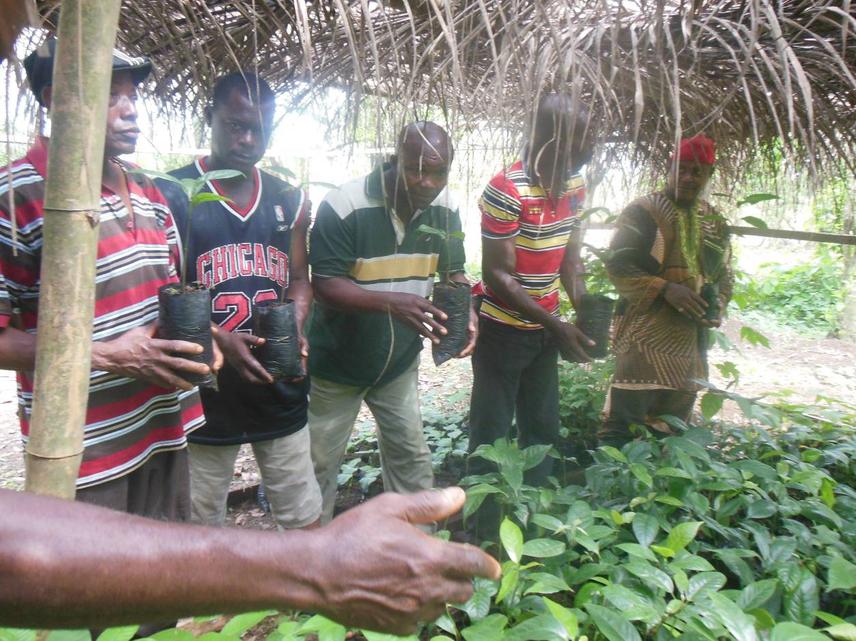John Manyitabot Takang
To curb deforestation and loss of biological diversity, contribute to ecological restoration and climate change mitigation, this project aims to: (i) educate village communities in Mamfe Central Sub-division of SW Region of Cameroon about the adverse effects of deforestation and (ii) mobilise them to take part in tree planting and agroforestry practices.

After the workshop, a nursery was established in one of the villages within the project area
Farmers, schools and other village community members in the 11 villages of Mamfe Sub-division shall be supported to plant high value indigenous trees (including multi-purpose trees for timber, fruits, firewood, poles and shade purposes, nuts, medicinal plants, etc.), and trees for ecosystems restoration. In this way, a more sustainable and diversified form of land use that will improve farm productivity and contribute to local socio-economic development shall emerge. Tree planting will improve biological diversity, restore critical ecological functions, increase carbon capture and as such contribute to mitigating global climate change.
Project Phases
Phase 1 shall comprise the following activities:
Organize community mobilization meetings on project activities
Organise 3 awareness workshops on the potential and benefits of conserving indigenous forests and agroforestry initiatives, targeting local leaders i.e. the parish and school authorities, the local council (LC) chairpersons and authorities responsible for community development in Mamfe Central Subdivision.
Phase 2 shall comprise the following activities:
Produce and disseminate awareness materials on fruit growing and tree planting practices, including radio programmes on the local radio station (Voice of Manyu), posters, theatre and T-Shirts.
Establish farm demonstration plots and tree nurseries within schools for education purposes.
Organise a short intensive course for the local extension workers on sustainable agroforestry production systems and use of natural resources.
Phase 3 shall comprise the following activities:
Undertake evaluation study taking account of the experience, best practices and lessons learned.
Compile print and multi-media case studies about the project.
Prepare and disseminate final evaluation of project to all stakeholders.
Key Outcomes
a. Informed and trained village communities with enhanced capacity to engage in forest and biodiversity conservation.
This project will mobilize community members and build their awareness, with the aim of changing their attitudes towards forest management, the importance of tree planting, agroforestry and sustainable farming practices. EGI will capitalise on local knowledge and strengthen social organization to enhance transfer of knowledge and skills between different members of village communities including pupils, teachers and parents and farmers. Through a change of information levels and attitudes, villagers will be able to actively engage in reforestation and agroforestry.
b. Increased capacity of community members to engage in participatory forest and natural resource governance.
Through awareness creation, advocacy and continuous mentoring of community leaders, the project will change will change power relations around natural resources by promoting participatory forest management. Local communities, especially women will play a greater role in in determining how forests are managed and benefits shared equitably among community members.